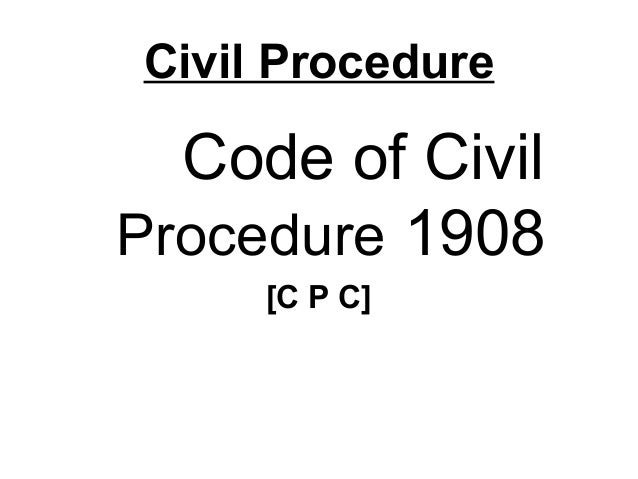Issues are points of contest between the parties in
a suit. In other words issues are those points raised from the pleading which
is a way for the court for entertaining a case and it brings the court at the
right conclusion of justice. The determination of issues has great importance
in the trial of a case, because it is issues and not the pleadings, which
indicates the appropriate evidence to be given. Pleadings constitutes
allegations to one-side or the other, and after determination which of the
allegations are material for the purpose of the trial and which of them are
admitted or denied, issues are framed and on the basis of these issues the
parties stand the test of the trial.
The object of framing of issues is for the purpose
of apprising the parties of the points on which they are expected to lead
evidence and to avoid any prejudice being caused to either side due to absence
of material issues.
According to Order 14 Rule 1(4) there are two kinds
of issues:
·
Issues of Facts
·
Issues of Law
Issue of fact means any issue, which has not been
determined, by a rule of law, but is to be answered, in accordance with the
evidence laid before the court.
Issue of law means that issue, which is to be
answered in accordance with the law and not in accordance with the facts or
evidences that is laid before the court.
According to order 14 rule 2, " where issues
both of law and fact arise in the same suit, and the court is of the opinion,
that the case or any part thereof may be disposed of on issues of law only, it
shall try those issues first, and for that purpose may if it thinks fit,
postpone the settlement of the issues of fact until after the issue of law have
been determined".
According to Order 14 Rule 1, issues arise when a material
proposition of fact or law is affirmed by one party and denied by the other.
Material propositions are those propositions of law or fact which a plaintiff
must allege in order to show a right to sue or a defendant must allege in order
to constitute his defence. Each material proposition affirmed by one party and
denied by the other shall form the subject of a distinct issue. At the first
hearing of the suit the court shall, after reading the plaint, and the written
statements, if any, and after such examination of the parties as may appear
necessary, ascertain upon what material propositions of fact or of law the
parties are at variance, and shall thereupon proceed to frame and record the
issues on which the right decision of the case appears to depend.
If an issue is not framed in the suit, while an allegation
was made in the plaint in-respect of certain facts and challenged in written
statement, the court can allow the parties to lead the evidence on such point,
and would give its decision without framing that issue.
The provision regarding the materials from which issues are
framed is found in Order 14 Rule 3, which provides that " the court may
frame issues from any of the following materials:-
I.
The court may frame issues from the allegations
made on oath by the parties, or by any persons present on their behalf or made
by the pleaders of such parties.
II.
The court may frame issues from the allegations
made in the pleadings or in answers to the interrogatories delivered in the
suit.
III.
The court may frame issues from the contents of
the documents produced by either part ".
The court may not frame any issues where after the filing of
a written statement, the court passes a consent decree on the agreement of the
parties
or
in regard to a matter upon which they are in agreement
or
where a point is alleged by the plaintiff and admitted by the defendant and a
decision can be given on the basis of such admission.
The power of the court to amend and striking-out of issues
is mentioned in order 14 rule 5, which provides that, " The court may at
any time before passing a decree amend the issues or frame additional issues as
may be necessary for determining the matters in controversy between the parties
shall be so made or framed. The court may also, at any time before passing a
decree, strike-out any issues that appear to it to be wrongly framed or introduced.
Primary duty to frame proper issues arising out of pleading
of parties rests on courts.
It means something that a party is required to prove an
allegation before judgment may be given in his favour.
Whoever desires any court to give judgment as to any legal
right or liability, dependent on the existence of facts which he asserts, must
prove that those fact exist.
The burden of proof is on the party who asserts and not on
him who denies, and in deciding which party asserts, the regard must be given
to the substance of issue.
“The issue must be
proved by the party who asserts it and not by the party who deems it.”
The general rule that a party who desires to move the court
must prove all facts necessary for that purpose is subject to following
exceptions.
The burden of proof as to any particular fact lies on that
person who wishes the court to believe in its existence.
Where it is provided by any law that the proof of that fact
shall lie on a particular person.
When any fact is especially within the knowledge of any
person, the burden of proving that fact is upon him.
Where presumption of fact operates in favour of a party then
burden to prove the contrary lies on the other party.









